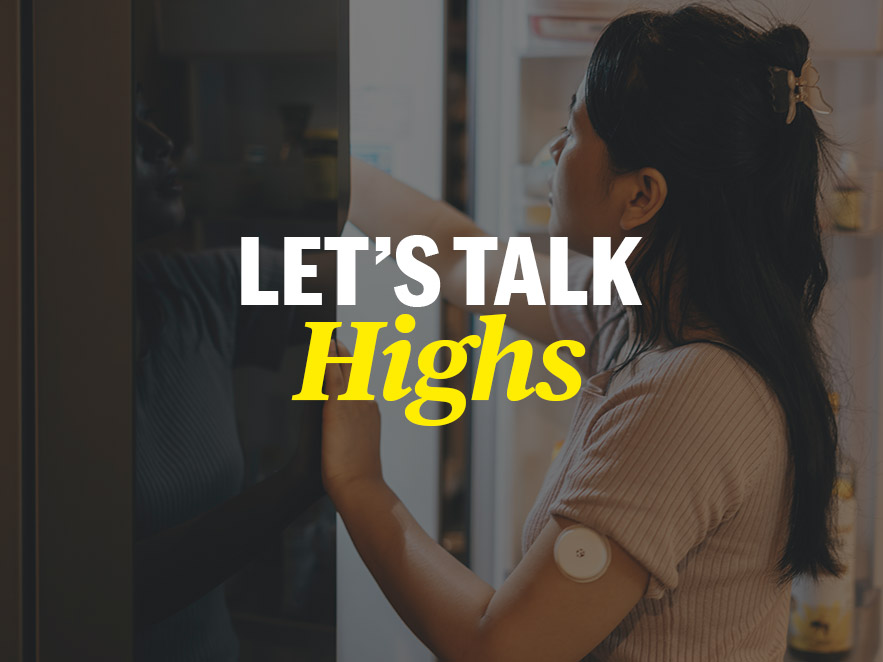Pedi-Ed Makes Explaining Diabetes to Your T1D Child Easier
Written by: Beyond Type 1 Editorial Team
3 minute read
August 4, 2021
Kids left out of the healthcare equation
Is your child disengaged during doctors visits, depending on you to advocate for their needs? This is totally normal. It’s not uncommon that a child patient is left out of the loop of their own medical care. A few summers ago, Ahaana Singh shadowed at a clinic, where she noticed how profound this issue was—many of the young patients were facing complicated ailments but had no understanding of what was actually going on; however, this doesn’t have to be the case.
Ahaana began digging through pediatric educational materials and found that there are very limited options for children to engage with their health and understand what they are going through. Moreover, the existing resources in the pediatric patient education space are parent-centered and far too complex for even the average parent to comprehend. While the average reading level of parents is at a seventh to eighth grade level, most patient resources require at least a 12th grade reading understanding. Thus, medical resources for kids are written in a language that most parents cannot even understand, let alone children.
Every year in the United States, 13,000 children are diagnosed with type 1 diabetes. As a parent, you are expected to quickly learn to manage their child’s blood glucose, how to calculate their insulin injections, keep track of what they are eating, while explaining to the child’s teachers and friends about their new limitations. However, all of this responsibility doesn’t have to fall on the parent’s shoulders. What if the child knew how to check with blood glucose levels, then inform other adults about their condition, and if they need assistance? What if the child knew correct information about their diabetes to be able to advocate for themselves?
Realizing knowledge is power
How can you empower your child with type 1 diabetes (T1D) to take control of their care? First, they must understand what T1D even is and how their medication really works. However, we know this can be near impossible for parents who can often be quite confused themselves. This is why we created Pedi-Ed. By creating child-facing pediatric education, Pedi-Ed incorporates children into their healthcare and creates informed, autonomous patients with better understanding, compliance and possibly health outcomes. We aim to replace the tired, standard, informational brochure and shift the focus on to the patient in an innovative way. Pedi-Ed stands out from others working to improve pediatric education because the content that we produce is created for children, with their needs in mind.
It had been proven that using videos to educate children and adults in the medical setting improves knowledge and understanding of their diagnosis, better self-adherence to medication regimens and an overall more pleasant experience for the patients. Children growing up in the twenty first century are accustomed to advanced animation and access to videos on the internet, however Googling “what is type 1 diabetes” on YouTube could return scary and unsettling results, that are not created with a child in mind. Pedi-Ed’s videos use animated characters, and utilize an age-appropriate tone, to explain these difficult and confusing topics, but in a safe setting.
Children are commonly overlooked during medical explanation stages because the content about their health is too complex or too scary. However, children really do want to understand their health. Imagine how your child would feel if they had the ability to explain to their friends why they have to check their blood sugar or why they have a tube attached to their body. Though pediatric patients usually pick up on these details as they mature, why not give them accessible education from the beginning, starting at their diagnosis, so they can feel in control and empowered every step of the way?
Pedi-Ed has conducted several focus groups about our media platforms and approach. We have received interest from providers, parents and children who believe this education is extremely valuable. Find out for yourself and your child if knowledge really is power.
How we do it
Our platform provides a resource for not only children, but also parents and providers. The human body is very complex, yet exciting. There are so many unique systems that overlap and build off each other, helping the body work as one cohesive unit. By learning about the endocrine system, you also learn about how the circulatory system carries the nutrients in the bloodstream that is absorbed from the digestive system, which influences blood glucose levels and the amount of insulin released by your pancreas. By breaking down all the moving parts using art and animation, we are able to convey complex concepts in a concise, understandable way.
Made with kids minds in mind, our videos are informative, but also engaging and entertaining.
Pedi-Ed is excited to have our new set of endocrinology videos available. We have videos that explain the difference between type 1 and type 2 diabetes, the genetics behind type 1, how insulin pens and pumps work, and how diabetes related to your pancreas. Although these are just a few topics that encompass diabetes, our hope that is having education materials specifically for children, the patient will want to learn more about their health, be involved in their treatment plans and be confident to restate this information when needed.
What you can do
We hope that by watching our videos, your child can better understand what it means to have diabetes. Share these videos with your friends and family, so they can also have their “Aha!” moment. You can find all of our content here.

Author
Beyond Type 1 Editorial Team
Beyond Type 1 is the largest diabetes org online, funding advocacy, education and cure research. Find industry news, inspirational stories and practical help. Join the 1M+ strong community and discover what it means to #LiveBeyond a diabetes diagnosis.
Related Resources

Hyperglycemia—or high blood sugar—can sneak up on you, whether it’s from a missed dose, a...
Read more

Curious about how to join a diabetes clinical trial? If so, good on ya’, because...
Read more

Diabetes clinical trials pave the way for how we manage and treat type 1 and...
Read more

